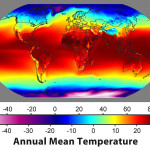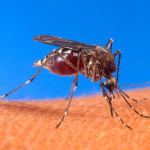Short Answers to Hard Questions About Climate Change
 I know climate change can be complicated. There is a lot of science involved, and if you’re not a scientist, it can be confusing. So here is your cheat sheet to climate change, curtesy of the New York Times. They answer some of your questions like, “How much trouble are we really in?” and, “What’s the optimistic scenario?” We are coming up on the Climate Change Conference in Paris, so it’s good to get some simple answers to hard questions. Now that you have your answers, what are you going to do about it?
I know climate change can be complicated. There is a lot of science involved, and if you’re not a scientist, it can be confusing. So here is your cheat sheet to climate change, curtesy of the New York Times. They answer some of your questions like, “How much trouble are we really in?” and, “What’s the optimistic scenario?” We are coming up on the Climate Change Conference in Paris, so it’s good to get some simple answers to hard questions. Now that you have your answers, what are you going to do about it?
Carbon Tax for Steak May Be the Best Way to Get People to Eat Less Meat
It has been proven in Mexico that if you raise the taxes on sugary drinks, people will buy less of it. So, here is a proposition using the same concept on meat. The meat industry accounts for 15 percent of emissions globally—equal to the amount of greenhouse gases generated by the world’s cars. A new report published last week by Chatham House, a policy think tank in London, puts forward an expansive road map for how countries could curb emissions by both encouraging and discouraging people from eating meat.
Scientists Just Genetically Modified a Mosquito to Be Malaria Resistant
 What do you think about this? Doctors and scientists have spent decades trying to find a vaccine for malaria. Now some say they’ve had a breakthrough by genetically targeting the carrier instead of the parasite itself. Scientists have found a way to modify the genes of a mosquito to kill the malaria virus, and have it pass on to future generations of mosquitoes. But will this hold up for future generations of mosquitoes? Will the gene backfire? What happens if it does? There are many questions we should be asking before something like this goes into production into our environment.
What do you think about this? Doctors and scientists have spent decades trying to find a vaccine for malaria. Now some say they’ve had a breakthrough by genetically targeting the carrier instead of the parasite itself. Scientists have found a way to modify the genes of a mosquito to kill the malaria virus, and have it pass on to future generations of mosquitoes. But will this hold up for future generations of mosquitoes? Will the gene backfire? What happens if it does? There are many questions we should be asking before something like this goes into production into our environment.

Comments are closed.